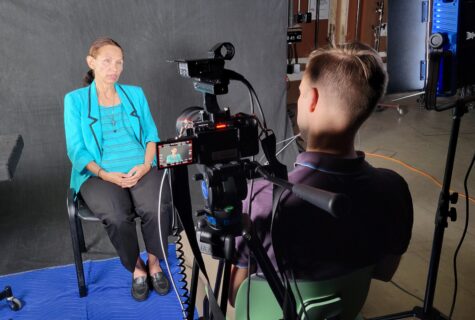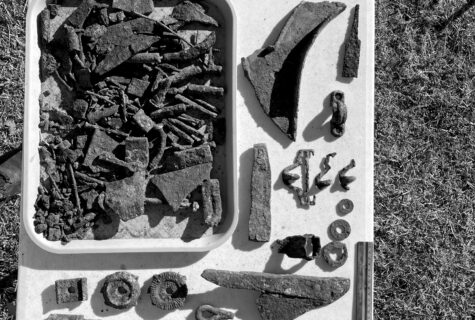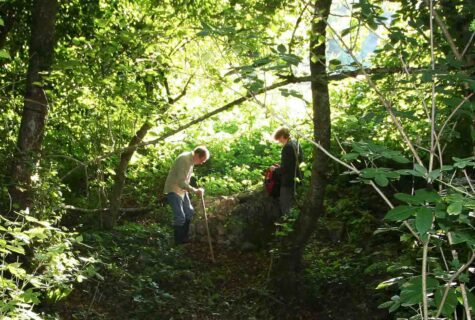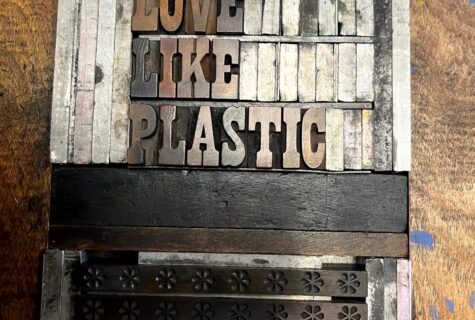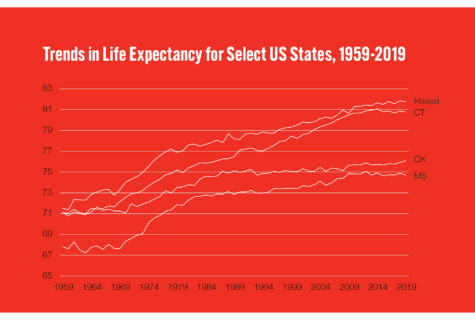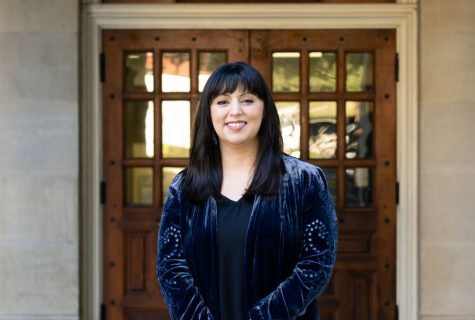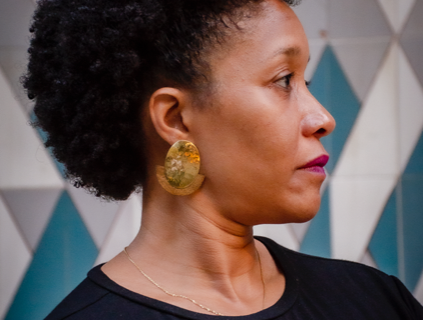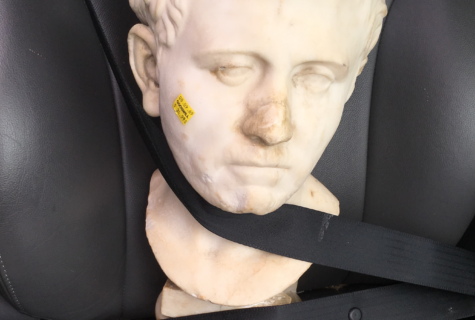Alison Kafer and Julie Minich are using their institutional platform — along with a financial boost from the Andrew W. Mellon Foundation — to make waves in the field of disability studies.
Research
Maggie Rivas-Rodriguez Has Some Questions For You
An experienced journalist turned university professor, Rivas-Rodriguez is leading CMAS through its largest oral history project yet.
Tom Cook’s Legacy
UT anthropologist Maria Franklin spotlights Black history in Bolivar, Texas.
The Re-Enfranchised, in Theory and Practice
Political scientist Hannah Walker explores how to bring the formerly incarcerated back into political participation.
Ask An Aqueduct
You’ve seen them on TV and in movies, in History Channel specials and textbooks on antiquity, maybe even on a tour of the Italian countryside. But to archaeologist Rabun Taylor, there’s more to aqueducts than meets the eye.
These Are Not Just Any Greeting Cards
Craig Campbell’s “Greeting Cards for the Anthropocene” don’t look anything like Hallmark.
On the Beauty of Crosswords
There are at least three big ways in which Robbie Kubala, assistant professor of philosophy at UT Austin, appreciates crossword puzzles. He’s exceptionally good at doing them, for one, and they’re a shared interest with his partner. They’re also an object of philosophical interest.
The Decline and Divergence of Life Expectancy in America: Sociologist Mark Hayward tries to unravel the mystery of why we’re dying sooner
Sociologist Mark Hayward explores why one of the wealthiest nations in the world is experiencing such a significant decline in a such a major indicator of well-being.
The End of the Line: “Endlings” and what their stories tell us about the planet, its inhabitants, and ourselves
Here is the basic anatomy of a story: there’s a beginning, a middle, and an end. But what can stories tell us about “endlings,” the last known individuals of their kinds?
The Science of Teaching Science: A UT Austin-Thinkery Partnership is building better science education for kids and communities
Cristine Legare studies how children learn and how to make informal learning exhibits more engaging and impactful for people of all ages.
How the Right Words Could Improve Policing
Could a simple sentence build trust and foster better communication between police officers and the communities they serve?
Bloody History, Historical Recovery
In The Injustice Never Leaves You, published in 2018 by Harvard University Press, historian and MacArthur “genius” fellow Monica Martinez documents the disturbing history of anti-Mexican violence during a period of rapid growth and economic transformation for the Lone Star State.
This is the Work: Nine Things to Know About Amira Rose Davis
An assistant professor of sociology, Davis specializes in 20th-century American history with an emphasis on race, gender, sports, and politics. But there’s a lot more you should know about her.
Black Women’s Academic Work is Not for the Taking
From its start at the National Women’s Studies Association Conference in 2018, Cite Black Women has developed into a movement. As founder and COLA professor Christen Smith has said, “I’m not fighting to be on someone’s bibliography. I’m fighting to have my intellectual self respected, and the intellectual work of my foremothers respected, the intellectual work of my sisters and friends respected.”
The Bell Tolls for WHOM: The complicated fate of the stuffiest object pronoun
Whom is dying out … mostly. As an essential part of grammatical English, that stuffy, old-fashioned object pronoun is declining in usage, and has been for more than a century. As a stylistic marker, though, it has some life left.
How Populism Dies: Political scientist Kurt Weyland sees a bright-ish future for liberal democracy
A longtime scholar of democratization and its discontents, Kurt Weyland’s work over the past few years has focused on explaining in detail why we are not, despite some appearances, in the midst of either a crisis of global democracy or an ascendant wave of illiberal populism.
#PRADAMARFA
For better or for worse, Marfa is a city defined by artists. In his new short documentary, “Prada Marfa? A Film about a West Texas Icon,” American studies professor Randy Lewis takes stock of the town’s transformation through the lens of Prada Marfa, a hyperreal public art installation that has become emblematic of the city.
Antiquities Road Show Busts Its Way to UT
In October of 2018, Austin-based antiques dealer Laura Young purchased a marble bust at Goodwill for $34.99. Suspecting that the sculpture might be a much greater find, Young reached out to The University of Texas at Austin professors Rabun Taylor (Classics), Stephennie Mulder (Art & Art History), and Penelope Davies (Art & Art History), to understand more about the piece. As it turns out, the artifact was indeed a find dating to ancient Rome, approximately the late first century B.C. or early first century A.D.
Program in British Studies is now the Program in British, Irish and Empire Studies: Broadening the Range of Voices and Histories in the Field and Beyond
The program formerly known as British Studies is now the Program in British, Irish and Empire Studies (BIES). The change comes as Professor Philippa Levine, former Guggenheim Fellow and 2020–21 Eastman Professor at Oxford University, assumes sole directorial duties after serving as co-Director for several years. The four-decade-old program has been remodeled to better encompass […]

